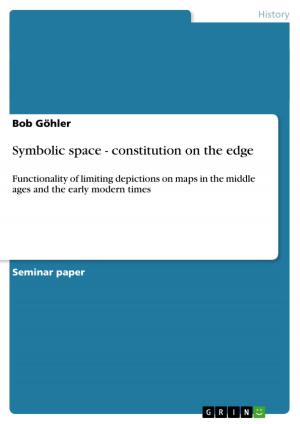Multi Channel Retailing in the Automotive Industry
Determinants of Consumer Channel Choice
Business & Finance, Marketing & Sales| Author: | Lena Fitzen | ISBN: | 9783640352814 |
| Publisher: | GRIN Publishing | Publication: | June 21, 2009 |
| Imprint: | GRIN Publishing | Language: | English |
| Author: | Lena Fitzen |
| ISBN: | 9783640352814 |
| Publisher: | GRIN Publishing |
| Publication: | June 21, 2009 |
| Imprint: | GRIN Publishing |
| Language: | English |
Master's Thesis from the year 2007 in the subject Business economics - Marketing, Corporate Communication, CRM, Market Research, Social Media, grade: A (Distinction 1), Edinburgh Napier University (Marketing Management and Research), course: MSc Marketing, language: English, abstract: Current regulatory and technological change factors force the development of an integrative multi channel approach over the whole car purchasing process to increase customer value and profit. Since the decade of multi channel services, the understanding and analysing of consumers behaviour gains more and more part in literature. Although if the adoption of new channels and particular channel usage is researched, further need of understanding why consumers use some channels rather than others, although purchasing the same products, is identified. Especially the automotive market is mainly focussed on product and manufacturer branding topics rather than distribution and service development. Using the example of the automotive industry this paper explores factors of influence on channel choice. Based on current literature and exemplified by a quantitative explorative study the present paper focuses mainly on the question asking after the main determinants on consumers channel choice during car purchasing and their nature of influence on it. A conceptual framework is developed, which argues that channel decision making in the automotive market is based on product, consumer, channel and organisational dimensions of determinants. Product and consumer characteristics are basic considerations influence the evaluated importance of channel related factors like experience, convenience, risk, price, entertainment and service. Finally the organisation itself with their reputation and offered range of products and services has to taken into account. The preliminary model could be viewed as a starting point structuring the understanding of the complex area of channel choice in a particular context like the automotive market.
Master's Thesis from the year 2007 in the subject Business economics - Marketing, Corporate Communication, CRM, Market Research, Social Media, grade: A (Distinction 1), Edinburgh Napier University (Marketing Management and Research), course: MSc Marketing, language: English, abstract: Current regulatory and technological change factors force the development of an integrative multi channel approach over the whole car purchasing process to increase customer value and profit. Since the decade of multi channel services, the understanding and analysing of consumers behaviour gains more and more part in literature. Although if the adoption of new channels and particular channel usage is researched, further need of understanding why consumers use some channels rather than others, although purchasing the same products, is identified. Especially the automotive market is mainly focussed on product and manufacturer branding topics rather than distribution and service development. Using the example of the automotive industry this paper explores factors of influence on channel choice. Based on current literature and exemplified by a quantitative explorative study the present paper focuses mainly on the question asking after the main determinants on consumers channel choice during car purchasing and their nature of influence on it. A conceptual framework is developed, which argues that channel decision making in the automotive market is based on product, consumer, channel and organisational dimensions of determinants. Product and consumer characteristics are basic considerations influence the evaluated importance of channel related factors like experience, convenience, risk, price, entertainment and service. Finally the organisation itself with their reputation and offered range of products and services has to taken into account. The preliminary model could be viewed as a starting point structuring the understanding of the complex area of channel choice in a particular context like the automotive market.















